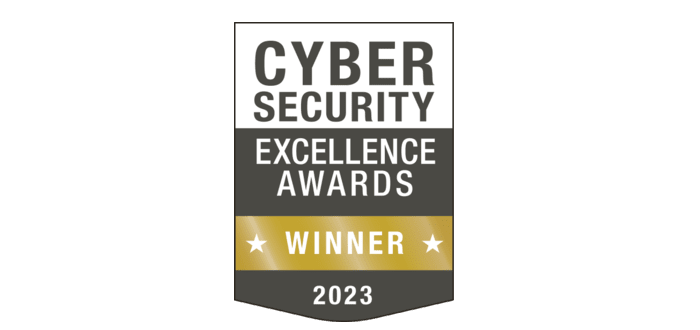30 Handy Pieces Of Advice For Picking A UAE Cyber Security Service
30 Handy Pieces Of Advice For Picking A UAE Cyber Security Service
Blog Article
Top 10 Tips To Evaluate The Wide Range Of Services Offered By A Cybersecurity Business In Dubai.
1. Find Core Services OfferedBegin your search by identifying the core services that are offered by the company. Risk assessments, Threat Management Incident Response, Vulnerability Assessments as well as Penetration Testing and Security Audits are all standard services. Knowing their primary competencies will determine whether they're the best fit for your specific needs.
2. Evaluation of Managed security services
If a company provides Managed Security Services (MSS) it is a great sign. MSS service providers are able to provide ongoing monitoring, management and maintenance of security systems. This is vital for businesses that lack in-house expertise. Their ability to provide ongoing services can be determined by evaluating their capabilities.
3. Review Compliance and Regulatory Services
Check if the cybersecurity company offers services that are in the compliance of local and international laws. You might require assistance in navigating local laws regarding data protection, PCI DSS or GDPR. Companies operating in highly-regulated areas must be aware of compliance.
Review Incident Capabilities
Examine the company's incident response capabilities. A well-constructed incident response strategy includes detection, containment, elimination, recovery, and lessons learned. Knowing how the company approaches incident management will help you gauge their preparedness for cybersecurity breaches.
5. Find Specialized Services
Explore whether the company offers specialized services tailored to specific industries or needs. It could be IoT or cloud security, as well as specific security solutions tailored to specific industries such as healthcare or finance. The company's specialized services show its ability to meet unique challenges.
6. Take a look at the Training and Awareness Programmes
Examine whether your company offers education and awareness programs for your employees. The training of employees is vital to reducing human errors, which are a major reason for security breaches. Businesses that provide comprehensive training can improve the security of their business.
7. Check for Threat Intelligence Services
Find out if a business provides threat intelligence. These services provide organizations with data on weaknesses and threats that allows them to take proactive measures. A comprehensive threat intelligence program can improve your security strategies.
8. Evaluate Technology Partnerships
Examine the company's relationships with technology vendors. Collaborations and partnerships with the top cybersecurity companies can enhance services and give you access to the most recent tools. An array of technology options can result in more secure security measures.
9. Assess Customization, Flexibility and Cost
If you are looking for an organization that can tailor their services to meet your specific needs consider the capacity of the firm to do so. It's not always possible to deal with all cybersecurity risks using a single product.
Review Service Level Agreements
SLAs or Service Level Agreements, are agreements that specify the degree of service provided. SLAs should clearly describe the scope of services, response times, and performance metrics. Understanding these agreements helps set expectations on service delivery. Take a look at the best Cybersecurity Company in UAE for blog info including learn computer security, ai and cybersecurity, cybersecurity consultancy services, network security in cyber security, basic cyber security, cyber security cybersecurity, network security, cyber security what, it security description, cyber security consulting and more.
Top 10 Tips On How To Evaluate The Technology And Tools Of A Cybersecurity Service Company In Dubai.
1. Start by evaluating the technology stack of the company. It includes all tools, software and hardware they use. A technology stack that is robust and diverse indicates the company's ability to successfully manage a variety of cybersecurity challenges. You should look for modern tools aligned to industry best practices.
2. Assess Security Solutions Offered
Look into the security solutions that the company offers such as firewalls, intrusion detection systems (IDS) and endpoint protection. Also, look at the security information and event management (SIEM), and the security information and event management (SIEM), systems. Understanding the scope of their services can aid you in determining if it meets your security needs.
3. Examine Integration Capabilities
Take into account how well the tools and technology you have in place are integrated with the company. A seamless integration is critical to ensuring that security is protected and that disruptions are kept to a minimum. Learn more about the approach they use for the integration of new technologies into your current infrastructure.
4. Request Information About Automation and AI
Examine the extent to which the business makes use of automation and artificial Intelligence (AI) in the security procedures they employ. AI can be used to recognize and identify threats. This could provide proactive security measures. Automation can boost the efficiency of your response and speed.
5. Be sure to check for updates to your software regularly.
Look into the way that the software company updates and patches its software. Regular updates are crucial to safeguard against vulnerabilities and threats. Maintaining tools in a proactive manner shows that you are committed to security.
6. Assess Vulnerability Management Tools
Take a look at the processes, tools and policies of the company with regard to vulnerability management. It is crucial to conduct a vulnerability scan and then manage it efficiently to discover and fix any weaknesses that may exist within your system. Ask about their methods of prioritizing, identifying and fixing security weaknesses.
7. Review Incident Response Technologies
Understand the technologies that your company employs for incident response. Effective incident response tools are able to significantly reduce the impact of a security breach. Inquire about the company's incident response procedures and technologies.
8. Examining Tools for Reporting & Analytics
Examine your company's reporting and analysis capabilities. Comprehensive reporting will provide insight into security postures and trends. It is essential to have tools for analytics that enable data-driven decision making.
9. Cloud Security Solutions
Assess the cloud security measures of the business, considering the rapid growth of cloud computing. Businesses that heavily rely cloud-based solutions must understand how to protect their cloud environments and safeguard the data they keep in cloud.
10. Review feedback from clients on the Tools
In the end, you should ask for feedback from clients on the technology and tools that you employ for your business. Case studies or testimonials that highlight the effectiveness of a specific technology can give you valuable insight into their practical applications. Check out the most popular penetration testing company in uae for website advice including cyber security education, security in information security, cyber cyber security, network security tech, network and systems security, cyber security usa, cyber security technology, managed cyber security services, cyber security services company, cyber security education and more.
Top 10 Ways To Assess The Security Capabilities Of A Cyber-Related Company
1. Review Training Content Start by reviewing the content of the security awareness training. Check that the course includes important subjects such as social engineering and encryption of passwords, phishing and data security. In order to equip employees with the required skills to detect and react effectively to any potential threats, it is crucial to have a curriculum that includes all the essential subjects.
2. Check Customization Options
Ask if you can customize the training program to suit your particular needs and culture. Making the training adaptable to your employees' unique situations and issues can improve engagement and relevancy and, ultimately, improve information retention.
3. Evaluate Training Delivery Techniques
Examine the different delivery methods to train your employees. You may select from workshops in person to online courses, interactive simulations or webinars. Combining various formats can provide a variety of ways of learning and improve the overall efficiency.
4. Interactive Elements
Check for interactive elements used in the training like questions, simulations and other real-world scenarios. Interactive training may increase the level of the level of engagement and retention. This makes it easier for employees apply their knowledge to real-world situations.
5. Review the frequency of updates
Ask about the frequency and updating of the training materials. As cybersecurity threats are constantly changing, regular training sessions and regular updates to the curriculum are crucial for employees to be up-to-date with the latest threats and best practices.
6. Measure the effectiveness of your programs
Learn about how the company assesses the effectiveness of its training programs. Take note of metrics, for example, the pre- and post-training assessment as well as the feedback of participants or patterns in reporting incidents. Analyzing the impact of the program will allow you to determine its value and areas to improve.
7. Verify that you are certified and in compliance
Check if the training program is accompanied by certification upon successful completion. Certificates are an excellent way to boost employee credibility and prove that they've mastered the skills needed. Be sure to ensure that the training you provide is compliant with any regulatory requirements your organization might be required to meet.
8. Seek out testimonials and references.
Get feedback from companies who have employed training services previously. Testimonials are an excellent method to learn how effective the training was and how employees reacted. Positive feedback is a sign of a good reputation for delivering effective awareness training.
9. Assess Post-Training Support
After the course, you should inquire about any support you will receive. Refresher courses, access a knowledge database as well as newsletters can be used as a continuous resource to enhance cybersecurity education.
10. Assessment Engagement and Culture-Building
Then, evaluate how the program has helped in creating a culture for security within your business. Look for initiatives that promote the continuous education of employees. These could include security-related newsletters and seminars. A solid security culture will encourage employees to accept their responsibility to protect the organization. View the top rated iconnect for more advice including cyber security tools, cyber security business, cyber security company, ot cyber security, cybersecurity consultancy services, cyber security software, network security solutions, consulting security, cyber security requirement, ot cyber security and more.